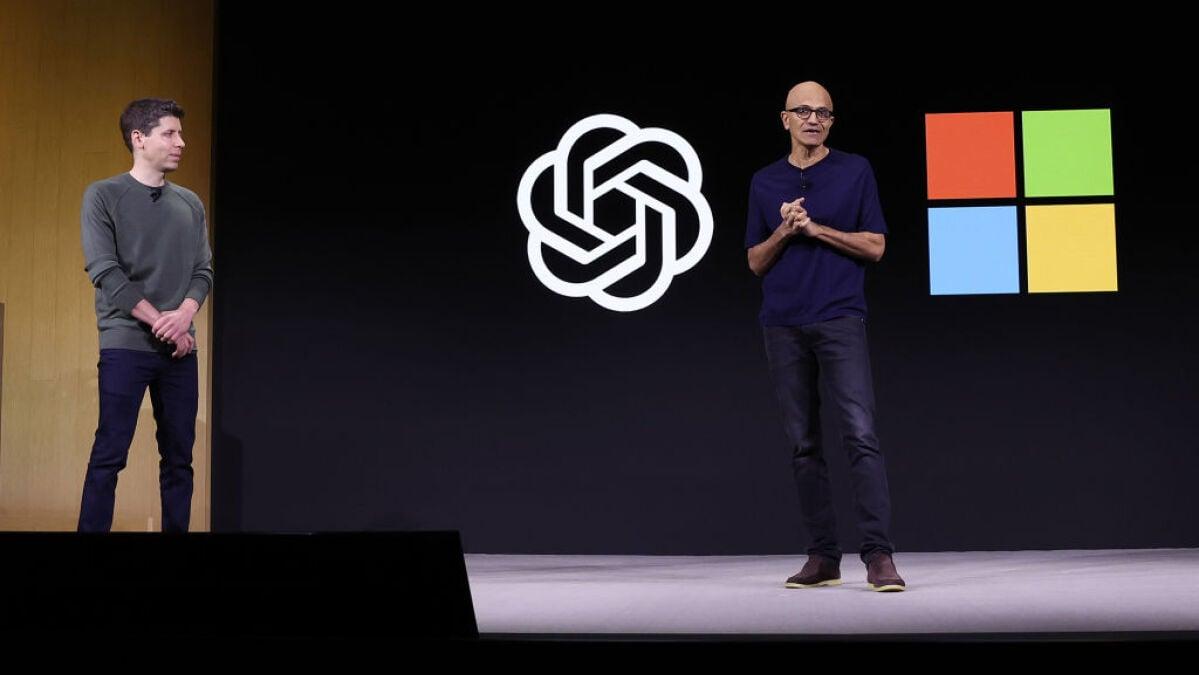Microsoft has largely relied on OpenAI's models to power its AI products, but now it's working on its own in-house models.
On Thursday, Microsoft launched a speech generation model called MAI-Voice-1, and started public testing for a foundation model called MAI-1-preview. The company said MAI-Voice-1 can generate a minute of audio in under a second on a single GPU, highlighting its efficiency. MAI-Voice-1 is already powering Microsoft's Copilot Daily and Podcast features which provide AI-generated audio news recaps and personalized podcast-style content, much like Google's NotebookLM.
This Tweet is currently unavailable. It might be loading or has been removed.
MAI-1-preview is currently restricted to LMArena, where users can try it out in head-to-head comparisons against other models and to trusted testers through the API. Microsoft says it will begin rolling out MAI-1-preview for "certain text use cases" in its Copilot chatbot for early user feedback.
Mashable Light Speed
Microsoft and OpenAI have both benefited from their close partnership. Microsoft has invested over $13 billion in OpenAI and provided critical cloud infrastructure to support OpenAI's models. In return, Microsoft has benefited from access to OpenAI's leading AI models, elevating its status to a global powerhouse in AI tools for businesses. But OpenAI has surged in influence and now offers subscription-based products for consumers with ChatGPT, developers with its API, and businesses with ChatGPT Enterprise. Despite Microsoft and OpenAI's official status as partners, the two companies have become competitors, creating an awkward and potentially untenable situation.
Recent reports describe an increasingly tense relationship between the two companies, especially as OpenAI seeks to convert its corporate status from a capped nonprofit to a for-profit public benefit corporation (PBC). This transition hinges on Microsoft's blessing as one of OpenAI's major investors. A specific clause in their contract that says their contract would end if/when OpenAI achieves AGI (artificial general intelligence). Microsoft is reportedly playing its card as an investor to try and renegotiate that clause for extended access to OpenAI's models.
Meanwhile, it looks like Microsoft is trying to shift away its reliance on OpenAI by developing its own models. Microsoft didn't respond to request for comment by the time of publication, but Mashable will update this story with a response.
Disclosure: Ziff Davis, Mashable’s parent company, in April filed a lawsuit against OpenAI, alleging it infringed Ziff Davis copyrights in training and operating its AI systems.



